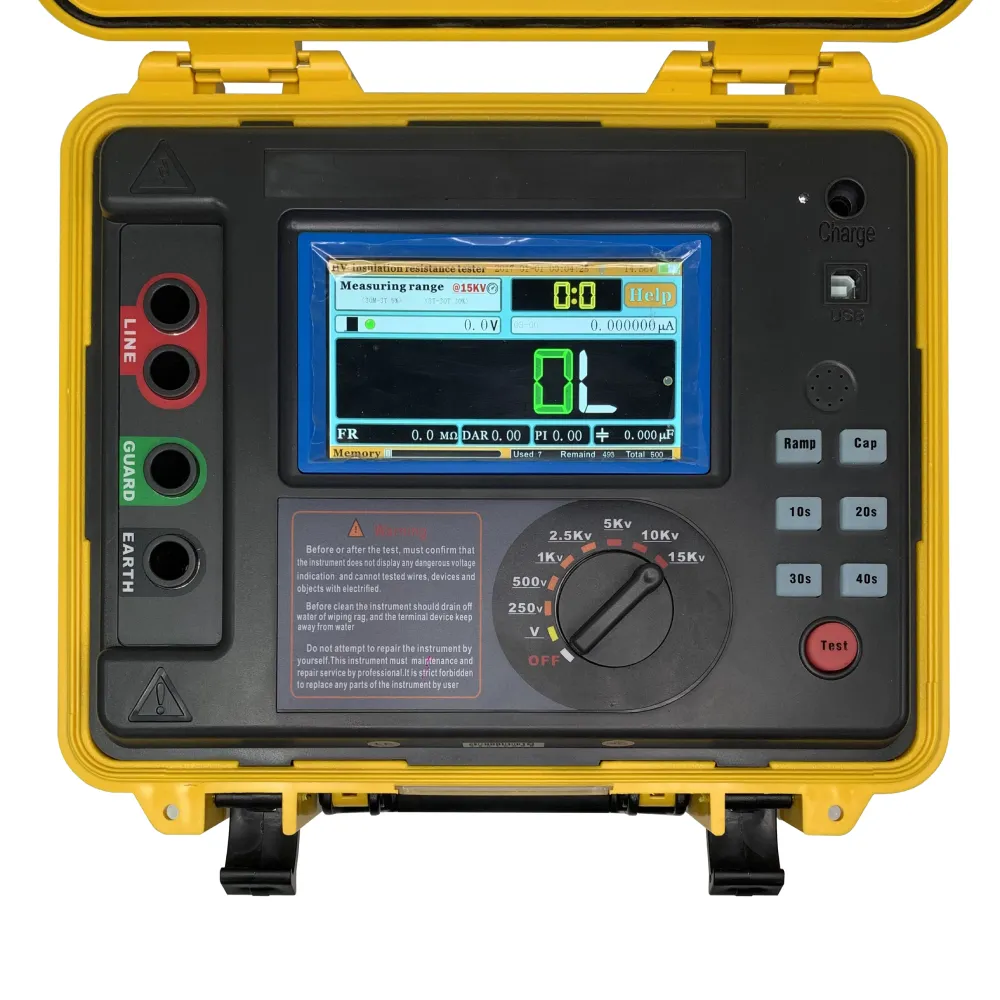 English
English


Advanced Trace Moisture Measurement Solutions for Precise Material Analysis and Quality Control
The Importance of Trace Moisture Analyzers in Modern Industries
In various industrial applications, maintaining optimal moisture levels is integral to ensuring product quality and operational efficiency. This is where trace moisture analyzers come into play. These sophisticated instruments are designed to measure extremely low levels of moisture content in different materials, making them invaluable in various sectors such as pharmaceuticals, food and beverage, electronics, and petrochemicals.
Precision and Reliability
Trace moisture analyzers are engineered to provide precise moisture measurements, often down to parts per million (ppm) levels. This high degree of sensitivity is crucial for industries where even the slightest variation in moisture content can lead to significant consequences. For instance, in pharmaceuticals, the presence of excessive moisture can compromise drug stability and efficacy, leading to product recalls and safety concerns. By employing trace moisture analyzers, manufacturers can ensure that their products meet stringent regulatory standards and maintain high quality.
Diverse Applications
The applications of trace moisture analyzers are indeed diverse. In the food and beverage industry, for instance, these instruments are employed to monitor the moisture content of raw materials like grains, fruits, and meats. This monitoring ensures that products are processed and preserved correctly, enhancing shelf life and preventing spoilage. Moreover, in the production of baked goods, optimal moisture levels are vital for achieving the desired texture and taste.
The electronics industry also benefits significantly from trace moisture analysis. Many electronic components, particularly semiconductors, are highly sensitive to moisture. Excessive moisture can lead to corrosion and failure of electronic devices, leading to costly repairs and replacements. Therefore, manufacturers often utilize trace moisture analyzers during the production and storage phases to mitigate these risks.
trace moisture analyzer

In the petrochemical industry, moisture content can affect product quality and lead to inefficient processes. For instance, the presence of water in fuels can lead to issues such as engine knock or failure. By implementing trace moisture analyzers, companies can enhance their fuel quality and ensure smooth operations.
Technological Advancements
The technology behind trace moisture analyzers has evolved significantly over the years. Today’s analyzers are equipped with advanced features such as real-time monitoring, data logging, and connectivity options that allow integration with other industrial systems. This capability enables businesses to track moisture levels more effectively and make informed decisions based on accurate data. Furthermore, modern analyzers often come with user-friendly interfaces, making them accessible to operators and reducing the likelihood of human error.
Cost-Effectiveness and Sustainability
Investing in trace moisture analyzers can lead to long-term cost savings for companies. By ensuring that products maintain optimal moisture levels, companies can minimize waste and reduce the need for rework or product recalls. Additionally, maintaining appropriate moisture levels contributes to sustainability efforts, as it helps in conserving resources and reducing excess energy consumption in processing and manufacturing.
Conclusion
In conclusion, trace moisture analyzers play a pivotal role in various industries by ensuring optimal moisture levels, enhancing product quality, and improving operational efficiency. As technology continues to advance, these instruments will likely become even more integral to industrial processes, helping companies meet regulatory requirements and achieve sustainability targets. For businesses aiming to thrive in a competitive market, investing in trace moisture analysis is not just a prudent choice; it is essential for success.
-
Differences between open cup flash point tester and closed cup flash point testerNewsOct.31,2024
-
The Reliable Load Tap ChangerNewsOct.23,2024
-
The Essential Guide to Hipot TestersNewsOct.23,2024
-
The Digital Insulation TesterNewsOct.23,2024
-
The Best Earth Loop Impedance Tester for SaleNewsOct.23,2024
-
Tan Delta Tester--The Essential Tool for Electrical Insulation TestingNewsOct.23,2024





